Past Recipients
Innovative Pedagogy Grant
The Innovative Pedagogy grant supports full-time faculty in the revision or development
of exemplary courses. The goal of these grants are to invest in the continuous quality
improvement of courses taught by faculty who provide students with exemplary, highly
engaging courses, offered either in an online, blended, or traditional format. Each
project addressed one or more pedagogy initiative such as Active Learning/Flipped,
Diversity/Inclusive Teaching, Experiential Learning, Integrative Learning or Technology
Integration.
Award Recipients 2018
Active Learning/Flipped
|
Fatih Ari, Clinical Assistant Professor, Educational Studies, College of Education, Applications of Learning Principles (EDET 709)
Fatih Ari, Clinical Assistant Professor, Educational Studies, College of Education,is “tuning
up”EDET 709: Applications of Learning Principles to facilitate meaningful student-student
and student-content interactions. Ari will redesign assignments and discussion activities
so that they offer opportunities for interaction and promote active learning through
authentic activities. Furthermore, the proposed revisions to the course will be based
on sound theoretical decisions implementing principles of experiential learning, adult
learning theory and social constructivist theory. With these changes, he expects that
students will become more engaged and active in the online environment, and see the
practical value of their learning. This, in turn, would promote transfer of learning
into new situations.
|
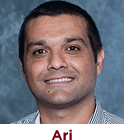 |
|
Ann Clifton, On Your Time Initiatives/Mathematics, College of Arts and Sciences, Calculus I (Math 141)
Ann Clifton, an instructor in On Your Time (OYT) Initiatives teaching mathematics, teaches Math 141: Calculus I, the first course in the calculus sequence. Many students
come in without a sufficient algebra background leaving instructors to decide between
leaving those students behind or sacrificing material throughout the semester. Presented
in a traditional face-to-face lecture format, there is little to no time for activities
or general class discussion. This puts the bulk of the higher forms of cognitive work outside the classroom without
the immediate help from an instructor or peers. Clifton will develop and implement
a flipped classroom for the course so that students will gain exposure to new material
prior to class and the more difficult tasks of application, analysis, synthesis, and
evaluation will occur in the classroom with access to their instructor and peers,
thus making it easier to bridge the gap between theory and practice.
|
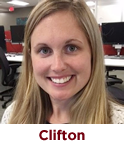 |
|
Nicole Hair, Assistant Professor, Health Services Policy and Management, Arnold School
of Public Health, Health Economics (HSPM 412)
HSPM 412 – Health Economics is offered as a public health major requirement for students
in the B.A. and B.S. programs. Traditional lecturing presents a challenging environment
in which to foster student engagement, particularly in this high-enrollment course.
Too often, the course falls short of assisting students in the development of a new
and useful skill set. Nicole Hair, assistant professor Health Services Policy and Management at the Arnold School of
Public Health, intends to make changes in individual class sessions and in the overall
course design to better connect with students. To encourage active learning and student participation, she plans to develop new (and
augment existing) in-class applications of course material, “flip” several class sessions
and expand the use of classroom response systems in any remaining lecture/note-taking
class sessions. Through the creation of learning communities and the implementation of innovative
pedagogical strategies (e.g. flipped learning and active learning strategies), she
hopes to better support students’ learning and progress toward meeting course objectives.
|
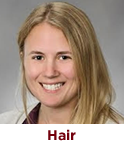 |
|
Daniel Kiernan, Senior Instructor of Biology, Division of Science, Mathematics and Engineering, USC Sumter, Biology 110
Daniel Kiernan, senior instructor of biology, Division of Science, Mathematics and Engineering at
USC Sumter believes that non-major science courses should produce informed citizens
who can think critically and are equipped with practical knowledge that is relevant
to their lives. When he first encountered the concept of flipped and case study pedagogy,
he found himself focusing on how inquiry-based teaching as opposed to more traditional
forms of teaching is a good recipe for relevance and critical thinking. With a desire
to encourage these qualities in his students, he created a new Biology 110 inquiry-based
course. A major issue that he encountered with the inquiry-based Biology 110 course
was running out of time. After hearing about the flipped classroom he determined that
the methodology was the perfect solution to his dilemma. The updated flipped/case study course with creative outside learning and inside cooperative
problem solving will allow students to learn about the scientific method (outside
the classroom) but also actually work through the scientific method (inside the classroom).
|
 |
|
Anwar Merchant, Professor, Director, Curriculum Development, Epidemiology and Biostatistics, Arnold
School of Public Health, Concepts and Methods of Epidemiology (EPID 701)
Concepts and Methods of Epidemiology (EPID 701) is an introduction to epidemiology
for master’s students. Anwar Merchant, professor, Epidemiology and Biostatistics at the Arnold School of Public Health
intends to revise EPID 701 to engage students more and make the content more relevant
to current needs. He plans to adopt an active learning/flipped classroom approach,
incorporate statistical software into instruction and design activities that integrate
concepts and relate to public health. The exercises and activities that will be developed
will reinforce core epidemiologic concepts and help the student integrate knowledge
across areas that are needed for public health practice. Student learning outcomes
are likely to improve because the material will be presented in different ways accommodating
individuals with varying learning styles, concepts will be reinforced by application
in different situations and technology will be integrated into learning.
|
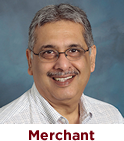 |
Diversity/Inclusive Teaching
|
Shemsi Alhaddad, Associate Professor, Mathematics and Statistics, USC Lancaster, Statistics and the Media (STAT 112)
Shemsi Alhaddad, Associate Professor of Mathematics and Statistics at USC Lancaster,is revising the
delivery method of the course content for STAT 112: Statistics and the Media to make
it accessible to more students. Currently Alhaddad teaches the class face-to-face
and supplements the meetings with online videos. Now he’ll be offering the class almost-fully
online, giving students an easier time fitting the coursework into their schedule.
|
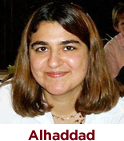 |
|
Karen Edwards, Senior Instructor, Department of Retailing, College of Hospitality, Retail and Sport Management, Asset Protection for Retailers (RETL 330)
The Course: RETL 330 Asset Protection for Retailers is designed to provide students
with an understanding of key concepts in retail loss prevention and risk management.
Karen Edwards, senior instructor, retailing, College of HRSM, plans to convert the course to 100%
asynchronous online delivery to better meet the needs of a growing and diverse student
population and to make more courses easily accessible to students, particularly over
the summer months. To date, students have been able to take RETL 330 only during the
fall or spring semesters, and in a traditional face-to-face classroom setting with
limited seating space. Offering an online version of the course during the regular
academic year, as needed, will enable students to timely graduate, and offer them
the convenience of continuing their studies in the summer months.
|
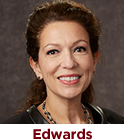 |
|
Deborah Hazzard, Clinical Assistant Professor, Department of Management, Darla Moore School of Business, Diversity and Inclusion
A diverse and multicultural environment, the current demographic shift and the presence
of multiple generations in the workplace and consumption-scape, has made the development
of diversity and inclusion strategies a key focus for multinational corporations.
Given the heightened focus on diversity and inclusion in organizations, Deborah Hazzard, clinical assistant professor department of management, Darla Moore School of Business,
will develop the first ever Diversity and Inclusion (D&I) course for the Darla Moore
School of Business (DMSB). During the D&I course students will explore basic concepts in diversity and inclusion
and will further explore their understanding of how D&I works in a corporate setting
through a strong experiential component. The goal of the course is to provide a forum
for meaningful conversations and active engagement relative to diversity and inclusion,
while also equipping students with the knowledge, skills and tools to create and implement
D&I training and strategies for organizations.
|
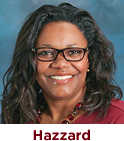 |
Experiential/Integrative Learning
|
Saurabh Chatterjee, Associate Professor, Director, Environmental Health & Disease Laboratory, Environmental Health Sciences, Arnold School of Public Health, Concepts of Environmental Health Sciences (ENHS 660)
Saurabh Chatterjee is an Associate Professor in the department of Environmental Health Sciences and
Director of the Environmental Health and Disease Laboratory at the Arnold School of
Public Health. He plans to revise ENHS 660: Concepts of Environmental Health Sciences, a core instructional course in the MS,
MPH and Ph.D. programs of the Arnold School of Public Health. Chatterjee will model
real-life, man-environmental interactions and challenges in a graduate science classroom
using innovative augmented reality theatric tools, experiential learning and flipped
learning approaches. He will introduce novel integrated theatrics as a tool to explain, facilitate learning
and disseminate strong scientific concepts in environmental health and climate change.
The revised class will also host at least two interactive exchange sessions involving
a pro and anti-talking point debate involving industry and environmental groups and
include lab based student visits.
|
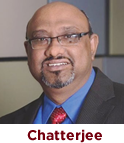 |
|
Suzy Hardie, Instructor, Educational Leadership and Policies, College of Education, Educational Leadership and Policies (EDLP) in Certification for Elementary Principals
and Certification for Secondary Principals
Suzy Hardie, instructor, Educational Leadership and Policies at the College of Education, intends
to bridge the gap between knowledge and application in pedagogical instruction for
principal preparation. The courses Educational Leadership and Policies (EDLP) in Certification for Elementary
Principals and Certification for Secondary Principals are taught in sequence and have
congruent learning objectives. Presently, the students entire program is online. Hardie
realized that the students needed additional practice with implementing a variety
of styles of leadership. She intends to develop a one-day seminar with face-to-face
interactions that is packed with leadership activities, relationship building activities,
and presentations by distinguished principals to help the master level students to
practice exemplary leadership. The revised course will provide experiential practice
with guided feedback in a safe setting to give the students the opportunity to practice
leadership skills including relationship building and to receive guided feedback from
the course instructor and peers.
|
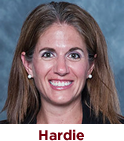 |
|
Nina Morena, Associate Professor, Languages, Literatures and Cultures; Linguistics, College of Arts and Sciences, Introduction to Spanish Linguistics (SPAN 515/ LING 504)
Nina Moreno, Associate Professor, Department of Languages, Literatures and Cultures; Linguistics
has worked for two semesters in flipping the format for her SPAN 515/ LING 504 (Introduction
to Spanish Linguistics) course. She wishes to further revise the methodology of the
course to develop a more prominent way to inspire integrative learning in her classes.
Her project goal is three-fold: 1. To create reading comprehension check exercises by integrating an application of
adaptive learning as the means to include formative assessments that provide feedback
to students. 2. To enhance the experiential learning components by incorporating ‘Reflection’
tasks at the end of every module and 3. Encouraging integrative learning by having
students apply what they learn in class to the outside world. Her proposed changes
to the course will help students retain new information, and then apply it to problem-solving.
The changes will also aid students in experiencing the class more meaningfully, as
they connect what they learn with the outside world.
|
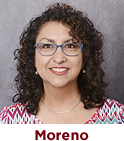 |
Technology Integration
|
Kathy Quarles Moore, Lab Instructor, Clinical Pharmacy and Outcomes Sciences, College of Pharmacy, Advanced Community Lab (PHMY 771)
PHMY 771 (Advanced Community Lab) is a comprehensive course designed to facilitate
student’s learning in more complex situations and tasks in the community setting.
Much of the course revolves around practical experiences taught through role-playing
and mock patient interactions. This is a skill-based class and this type of active
learning engages the students in an environment where students are comfortable and
can make mistakes without real life negative patient outcomes. Currently, the College
of Pharmacy’s capabilities to provide videos to demonstrate proper patient interaction
is limited. Kathy Quarles-Moore, Lab Instructor, Clinical Pharmacy and Outcomes Sciences in the college of pharmacy
sees technological expansion as necessary to provide a better and more effective learning
experience in terms of flipped, active learning and distance education. An expansion
could improve the manner in which interaction issues are conveyed and allow more personalized
and realistic scenarios. Students would be provided with the best possible practical experience prior to advanced
clinical rotations.
|
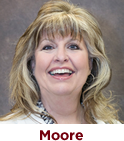 |
|
Stephen Thompson, Professor, Instruction and Teacher Education, College of Education, Elementary Science Instruction (EDEL 450)
Stephen Thompson, professor of Science Education at the college of Education is revising the on-line
version of the EDEL 450 Elementary Science Instruction course taken through Palmetto
College. The majority of the college’s teacher candidates take a traditional “brick and mortar” EDEL 450 course. Over the past several years the Elementary Education
program began to emphasize “practice-based” teaching approaches. This emphasis on
practice-based approaches has created gaps between the on-line and brick and mortar
coursework. Thompson will revise the on-line EDEL 450 course to add “Video-case” components
to the on-line EDEL 450 course section. These video-cases will be used to create “guided”
classroom-based experiences that are similar to those the EDEL 450 brick and mortar
teacher candidates’ experience. The series of video-cases will allow teacher candidates to observe model teaching, practice professional-decision-making
in a guided setting, and engage in collaborative reflection.
|
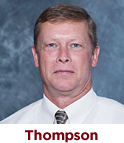 |
|
Donna Watts, Instructor, Department of Retailing, College of Hospitality, Retail and
Sport Management, Fashion Through the Ages: 1800 A.D. to Present (RETL 116)
RETL 116 – Fashion Through the Ages: 1800 A.D. to Present is an elective online course
in the Department of Retailing available to all University students. The course currently
uses very little technology (none outside of Blackboard). Donna Watts, Instructor in the department of retailing plans to integrate several technological
components to bring the course into the digital age, not only making it more relevant
and interesting for students but also adding a wealth of online content previously
unavailable in the course. She will be integrating technology into every chapter of
the course, providing pertinent websites and online data in each weekly module and
adding numerous online activities and assignments to keep students engaged. In addition
to incorporating exciting technology, she also plans to add a “Sustainability in Fashion”
section to the course. With increased emphasis on environmental responsibility, fashion sustainability is
a pertinent topic for today’s retail students.
|
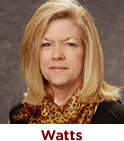 |














